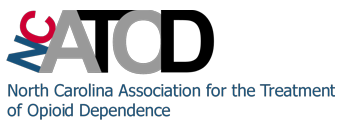AG Stein Launches Social Media Conversation to Discuss Opioid Crisis
For Immediate Release:
Monday, Feb. 27, 2017
Contact:
Laura Brewer
(919) 716-6484
AG Stein Launches Social Media Conversation to Discuss Opioid Crisis
#opioidsurvivor allows people to share stories, learn about resources, raise awareness
RALEIGH, N.C. – Attorney General Josh Stein today announced that his office will host a social media conversation each Tuesday to discuss the opioid epidemic. Facebook and Twitter users can use #opioidsurvivor to share stories about their personal connection to the opioid epidemic, to discuss resources for treatment and success in recovery and to raise awareness of the dangers associated with opioid misuse and addiction. The first conversation will take place tomorrow, Feb. 28, which is North Carolina Addiction Recovery Day.
“Opioid addiction is tearing families apart all across our state,” said AG Josh Stein. “Four people die in North Carolina each day from an overdose, while four times that amount are hospitalized and another eight times that amount are taken to emergency rooms. Research has shown that many people view prescription drugs as safer and less addictive, which is an extremely dangerous misconception. My hope is that facilitating this conversation will help raise awareness for the danger of using these drugs and provide hope and support for people trying to recover from addiction.”
To participate in this conversation, users should post their stories and thoughts about this issue on Twitter or Facebook and include #opioidsurvivor in their message.
Background on AG Stein and this issue:
- Confronting the opioid epidemic is one of AG Stein’s top priorities. He is working with the North Carolina General Assembly on legislation to address the issue.
- AG Stein recently delivered a speech on the topic available here.
- AG Stein also is traveling to communities across the state that have been impacted by this issue. Coverage of a recent event in Fayetteville is available here and here.
- Please visit http://ncdoj.gov/opioidcrisis for more information on this issue and AG Stein’s approach.
###
Posted in: Blog, News, North Carolina
Leave a Comment (0) →